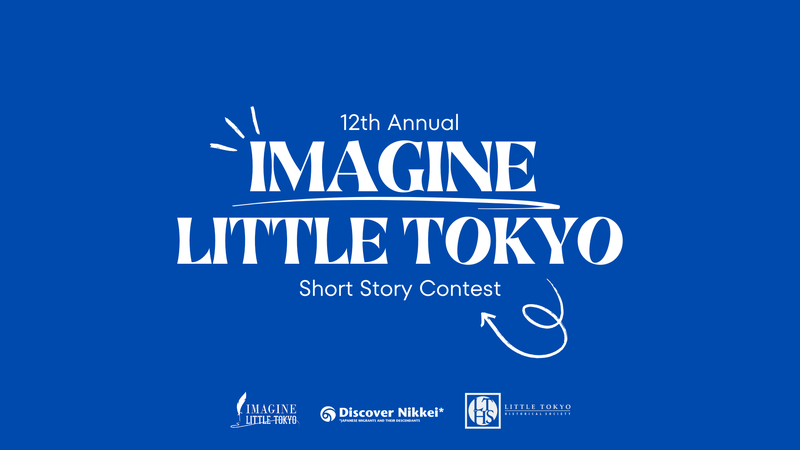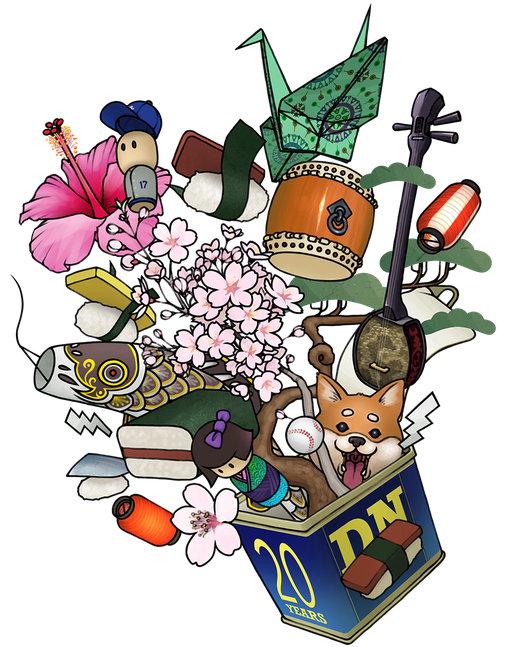Power of Our Stories

This series features projects that help to preserve and share Nikkei stories in different ways—through blogs, websites, social media, podcasts, art, films, zines, music, merchandise, and more. By highlighting these projects, we hope to share the importance of preserving and sharing Nikkei stories and inspire others to create their own.
If you have a project you think we should feature, or are interested in volunteering to help us conduct future interviews, email us at Editor@DiscoverNikkei.org.
Logo design: Alison Skilbred
Stories from this series
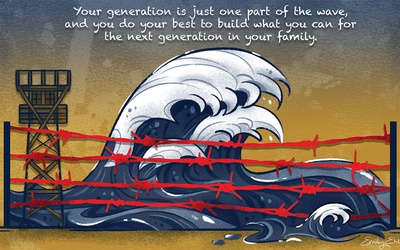
New Podcast Series Explores the Legacy of Japanese American Incarceration— Q&A with the Oral History Center’s Shanna Farrell
Feb. 9, 2024 • Anne Brice
When oral historian Shanna Farrell began interviewing descendants of Japanese Americans incarcerated by the U.S. during World War II, she didn’t make any assumptions. “They are not monoliths,” said Farrell, who has been on staff at the Bancroft Library’s Oral History Center since 2013. “Each person has experienced their ancestors’ incarceration differently — some are deeply affected and have spent their lives processing and expressing the trauma, and for some, they aren’t affected as deeply.” The project, called Japanese American …
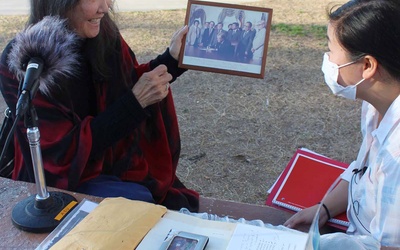
The Power of Storytelling: Introducing the Chasing Cherry Blossoms Podcast — Part 2
Jan. 17, 2024 • Emily Hood
Read Part 1 >> Throughout the making of this podcast series, have you gained more insight into your own identity? Did you find individuals’ stories and experiences relatable? Are there differences? Higashitani: My artistic identity has not changed but it was strengthened by the stories that we learned. I recently interviewed Henry Kaku who was born stateless because his father served in the U.S. Army before WWII but the father’s American citizenship was taken away and he was sent to …
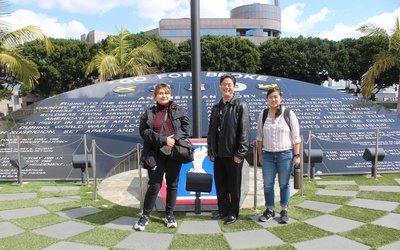
The Power of Storytelling: Introducing the Chasing Cherry Blossoms Podcast — Part 1
Jan. 16, 2024 • Emily Hood
The history of the Japanese and their descendants in America stretches back to the 19th century, following the 1868 Meiji Restoration, which led to rapid industrialization and the adoption of Western ideas. For much of Japan’s history, the island nation was isolated from the rest of the world. However, in 1853, Japan’s isolationism came to an end, leading to the gradual globalization of its economy and opening of its borders to foreign influence and opportunity. Many Japanese in turn immigrated …
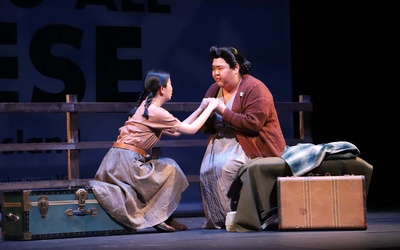
In American Dream
Nov. 27, 2023 • Esther Newman
There are as many ways to tell a story as there are stories. Historians, novelists, and artists of every conceivable medium have all chronicled the unjust internment of Japanese Americans during WWII. But an opera? Turns out, opera has always been the perfect medium to capture the emotions of highly charged dramatic events. Hawai‘i Opera Theatre’s recent production of An American Dream demonstrated exactly that. With exceptional performances, costumes and set designs, this modern opera captured the anguish and difficult …
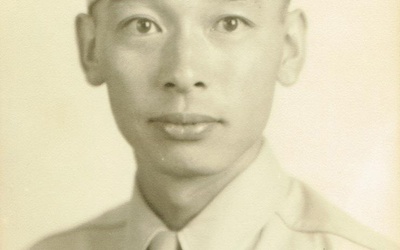
The Power of Persistence: Tour Manzanar with Nell Yukiye Murphy
Oct. 24, 2022 • Esther Newman
Nell Yukiye Murphy knows the importance of keeping a significant part of Japanese American history alive and she also knows the power of persistence. That makes her a natural choice to be profiled for Discover Nikkei’s series, The Power of Our Stories. Nell has developed and produced a virtual tour of Manzanar, “Journey to Manzanar,” and thanks to her persistence, it’s now accessible to everyone. Nell Murphy is from Northeast Los Angeles and at 18 years of age, she’s already …
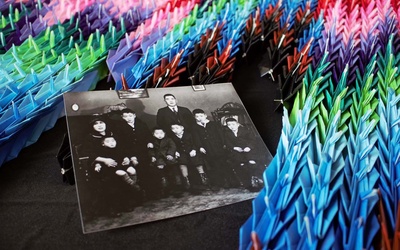
Tsunagu: Connecting Family Stories through the Generations
June 7, 2022 • Lucy Komori
I have a curiosity about my father’s family history. Why did my grandfather cross a vast ocean from Wakayama, Japan to an unknown land to seek his fortune? Why don’t we have any relatives in Japan any longer? What are the family traits that I have acquired through osmosis? My father and his brothers were not storytellers, so family lore and values were not explicitly shared with my Sansei cousins and me. Only in recent years have I had the …
 We’re looking for stories like yours!
Submit your article, essay, fiction, or poetry to be included in our archive of global Nikkei stories.
Learn More
We’re looking for stories like yours!
Submit your article, essay, fiction, or poetry to be included in our archive of global Nikkei stories.
Learn More
New Site Design
See exciting new changes to Discover Nikkei. Find out what’s new and what’s coming soon! Learn MoreAnne Brice is a writer and podcast producer for the Department of Communications and Public Affairs at UC Berkeley. In her role, she focuses on amplifying both loud and quiet voices, with the goal of bringing people's unique experiences to life. Her work aims to highlight individual stories, while shedding light on broader national and international issues.
Updated February 2024
After graduating from International Christian University, Keiko Fukuda worked at a publishing company for an information magazine in Tokyo and moved to the U.S. in 1992. She served as Editor-in-Chief of a Japanese information magazine in Los Angeles until 2003 and transitioned to freelance work that same year. She conducted interviews with various people and reported on topics such as education in the U.S. and Japanese food culture. In 2024, she relocated her base to her hometown of Oita and has continued her reporting and writing online. Website: https://angeleno.net
Updated October 2024
Ian Hunter received is BA in History from the University of Virginia, and his MA in Asian Studies from the University of California - Santa Barbara, where he focused on contemporary Japanese anthropology and hikikomori studies. He currently lives and works in his hometown of Alexandria, Virginia.
Updated September 2023
Writer Norm Masaji Ibuki lives in Oakville, Ontario. He has written extensively about the Canadian Nikkei community since the early 1990s. He wrote a monthly series of articles (1995-2004) for the Nikkei Voice newspaper (Toronto) which chronicled his experiences while in Sendai, Japan. Norm now teaches elementary school and continues to write for various publications.
Updated August 2014
Kate Iio was born and raised in Los Angeles, CA. Her father was born in Japan, her mother was born in Taiwan, and has an older sister, and two dogs. She graduated from the University of California, Santa Barbara in 2019 and is currently teaching English in Japan through the JET Program.
Updated July 2019
Daijiro (Don) Kanase is an active-duty infantry soldier in the U.S. Army. He currently lives in his hometown in Los Angeles as a research fellow at RAND Corp, Santa Monica. He is an avid kendo and judo practitioner. He holds an M.A. in military operations from the School of Advanced Military Studies at Fort Leavenworth, KS, and a B.S. in mechanical engineering from the U.S. Military Academy at West Point, NY.
Updated April 2020
Elaine Ikoma Ko is the former Executive Director of the Hokubei Hochi Foundation, a nonprofit that helps The North American Post, Seattle’s Japanese community newspaper. She is a member of the U.S.-Japan Council, an alumnus of the Japanese American Leadership Delegation (JALD) to Japan, and leads spring and autumn group tours to Japan.
Updated April 2021
Lucy Komori is a sansei from Vancouver, Canada. She has a deep, abiding curiosity about the stories of Japanese Canadians from pre-war struggles to post-war rebuilding and a desire to share these stories with younger generations of yonsei and gosei. Lucy has been involved with the JC community in Vancouver for over 50 years through taiko and other community and arts initiatives.
Updated June 2022
Esther Newman grew up in California. After college and a career in marketing and media production for Ohio’s Cleveland Metroparks Zoo, she returned to school to study twentieth century American history. While in graduate school, she became interested in her family’s history which led to research on topics affecting the Japanese Diaspora including internment, migration and assimilation. She is retired but her interest in writing about and supporting organizations related to these subjects continues.
Updated November 2021
Tamiko Nimura, PhD, is an award-winning Asian American (Sansei/Pinay) creative nonfiction writer, community journalist, and public historian. She writes from an interdisciplinary space at the intersection of her love of literature, grounding in American ethnic studies, inherited wisdom from teachers and community activists, and storytelling through history. Her work has appeared in a variety of outlets and exhibits including San Francisco Chronicle, Smithsonian Magazine, Off Assignment, Narratively, The Rumpus, and Seattle’s International Examiner. She has written regularly for Discover Nikkei since 2016. She is completing a memoir called A Place For What We Lose: A Daughter’s Return to Tule Lake.
Updated October 2024
Marissa Shoji is a Girl Scout from south San Jose, who is part of the San Jose Buddhist Church Betsuin Girl Scouts. She wrote a series of stories on Japanese immigrants detained on Angel Island during World War II as part of her Gold Award project, the highest award a Girl Scout can earn. Working in conjunction with Angel Island Immigration Station Foundation, her final plan is to create an exhibit dedicated to the Japanese experience on Angel Island during World War Two. She is very interested in spreading knowledge on the Japanese internment to those of the newer generations, so that their pain will never be forgotten, and instead will be built upon to create a better future.
Updated March 2020
Emily Hood, born and raised in San Diego, is currently working towards her B.A. in political science from UC Berkeley. She is an alum of the university’s entrepreneurship program, Fung Fellowship, in the Conservation + Tech track. She has also worked as an intern with the nonprofit, Citizens Take Action, where she contributed to the creation of a local government Report Card analyzing cities’ campaign finance laws. Emily is half Japanese and enjoys making homemade boba, cuddling with her dog, and watching stand-up comedy.
Updated January 2024

Discover Nikkei Updates

